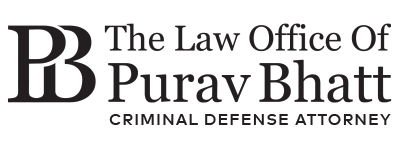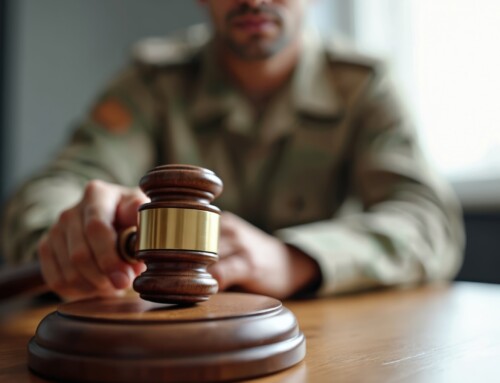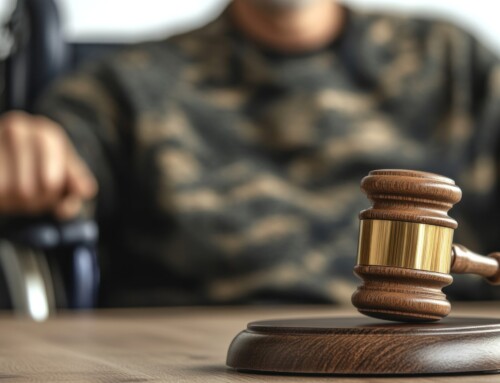Being charged with child pornography while serving in the U.S. military is one of the most serious allegations a service member can face. These charges carry not only severe legal consequences under the Uniform Code of Military Justice (UCMJ) but can also permanently impact your military career, including the possibility of a dishonorable or bad conduct discharge, mandatory sex offender registration, and significant limitations on future civilian and professional opportunities.
This blog is designed to provide clarity, guidance, and practical steps for service members who are under investigation or have been formally charged with child pornography offenses. From understanding how military investigations work to the defense strategies available and the importance of hiring an experienced military defense lawyer, this guide aims to help you navigate this complex and high-stakes process while protecting your rights, career, and future.
If you are serving at Fort Bragg in Fayetteville, NC, Fort Hood in Killeen, TX, or Fort Bliss in El Paso, TX, and are under investigation or facing child pornography charges, your future and freedom are at risk. The military justice system moves quickly, and the consequences of a conviction can be devastating: dishonorable discharge, mandatory sex offender registration, and the loss of everything you have worked for in your military and civilian life.
With years of experience in military and criminal defense, attorneys Purav Bhatt and Anthony Villalobos at The Law Office of Purav Bhatt bring the knowledge, dedication, and strategic skill necessary to stand by service members confronting these challenges.
If you or a loved one is facing a military charge, do not wait. Contact us today at 773-791-9682 for a free and confidential consultation and allow our team to build a strong defense that protects your rights, your reputation, and your future.
👉Also Read: What Are the Consequences of a Military Assault Conviction and Why You Need a Military Defense Attorney
Understanding Child Pornography Charges in the Military Justice System
Under the Uniform Code of Military Justice (UCMJ), child pornography encompasses a range of criminal acts, including the possession, distribution, creation, or receipt of sexually explicit material involving minors. Even viewing or downloading such material on a government-issued or personal device can trigger charges.
Military service members are subject to stricter standards than civilians because the UCMJ imposes accountability not only for criminal acts but also for conduct that may compromise the integrity, discipline, and mission readiness of the armed forces. This means that behaviors that might be prosecuted under state or federal law in the civilian world can carry additional consequences in the military, including administrative action, loss of rank, or discharge, regardless of whether a criminal conviction ultimately occurs.
Common forms of conduct that can lead to charges include:
- Possession of child pornography on personal devices or government-issued electronics.
- Distribution or sharing of sexually explicit material involving minors.
- Creation or production of sexually explicit content depicting minors.
- Solicitation or coercion of minors online for sexual purposes may also intersect with other UCMJ violations.
Even unintentional access to illegal material can lead to serious consequences, making it essential to understand what constitutes a violation under military law.
How Military Investigations Work
When a service member is suspected of involvement with child pornography or sexual assault, investigations are typically conducted by the branch-specific criminal investigative agencies. These include:
- Criminal Investigation Division (CID) for the Army
- Naval Criminal Investigative Service (NCIS) for the Navy and Marine Corps
- Office of Special Investigations (OSI) for the Air Force
These agencies are responsible for gathering evidence, interviewing witnesses, and building a case that may lead to administrative action or a court-martial. Investigations are often thorough and can involve both military-issued and personal devices.
Typical investigative procedures may include:
- Monitoring digital activity: Agencies may review emails, social media accounts, cloud storage, and other electronic communications.
- Interviews and interrogations: Investigators often question the accused and relevant personnel to gather statements.
- Searches and seizures: Both government-issued and personal property may be examined, including computers, phones, and storage devices.
- Evidence collection and forensics: Digital forensics specialists analyze data for illicit material and document findings for potential prosecution.
Understanding your procedural rights during a military investigation is crucial. Service members have the right to remain silent, to consult with a military attorney before providing statements, and to ensure that searches and evidence collection comply with legal and constitutional standards. Missteps during an investigation, such as speaking without counsel or mishandling evidence, can have severe implications for your defense.
Being aware of the investigative process, the agencies involved, and your rights is the first step in protecting yourself when facing such serious allegations.
Procedural Aspects of Military Criminal Defense
Navigating child pornography charges in the military requires understanding the distinct procedures under the Uniform Code of Military Justice (UCMJ). The process typically begins with an allegation and proceeds through several critical stages:
Initial Notification and Investigation
Once an allegation arises, the service member may be formally notified or placed under investigation. Investigative agencies such as CID, NCIS, or OSI will gather evidence, interview witnesses, and document findings to determine whether charges are warranted.
Article 32 Hearing
Before a general court-martial can proceed, an Article 32 hearing may be conducted. This hearing is similar to a civilian grand jury and evaluates whether sufficient evidence exists to formally charge the accused. Military defense lawyers play a vital role in these hearings by challenging evidence and protecting the rights of the service member.
Court-Martial Types and Implications
Military cases are adjudicated through different types of court-martial, each with varying levels of severity:
- Summary Court-Martial: The least severe, typically used for minor offenses, with limited sentencing authority.
- Special Court-Martial: Equivalent to a misdemeanor trial, allowing for more significant penalties, including confinement and reduction in rank.
- General Court-Martial: The most serious, comparable to felony trials in civilian courts, with potential for long-term imprisonment, dishonorable discharge, and other severe consequences.
Rights Afforded to Accused Service Members
Service members retain key constitutional and procedural rights, including:
- The right to remain silent and avoid self-incrimination
- The right to consult with an experienced military defense attorney
- Protection against unlawful searches and seizures
- The right to a fair and impartial trial under UCMJ regulations
Military vs. Civilian Prosecution
While there are similarities to civilian criminal law, military prosecutions differ in several ways:
- The chain of command can influence administrative and judicial processes.
- Military evidence collection may follow specific UCMJ protocols that differ from civilian procedures.
- Sentencing can include both punitive and administrative consequences unique to the military, such as discharge and loss of benefits.
Understanding these procedural aspects is essential for service members facing charges. Timely legal representation and knowledge of the process can significantly influence outcomes and help protect both rights and future career prospects.
Immediate Steps to Take If Under Investigation for Child Pornography Criminal Charges
If you are under investigation for child pornography charges in the military, every action you take can have serious consequences. It is critical to act carefully and strategically from the very beginning.
Do Not Speak to Investigators Without Counsel
One of the most important steps is to exercise your right to remain silent and avoid providing statements to CID, NCIS, OSI, or any other investigative authority without first consulting a military defense attorney. Even seemingly innocent comments or explanations can be used against you during an investigation or trial.
Preserve Evidence
Ensure that all relevant digital and physical evidence is carefully preserved. Do not delete files, alter devices, or attempt to hide materials, as this can lead to additional charges or allegations of obstruction of justice. Your attorney can guide you on how to secure and document evidence appropriately.
Maintain Professionalism
Avoid any actions that could be perceived as suspicious or uncooperative. Maintain professionalism in all communications and interactions with investigators, superiors, and colleagues. Even casual remarks or social media activity could be misconstrued or used as evidence.
Contact a Military Defense Attorney Immediately
Time is critical. Engaging an experienced military defense attorney as early as possible is essential for protecting your rights, evaluating the evidence, and developing a defense strategy. A skilled attorney can also advise you on the proper handling of interviews, searches, and documentation while safeguarding your career and future.
Taking these steps immediately can minimize risks, preserve legal options, and set the foundation for a strong defense. Acting cautiously and securing legal counsel is your best chance to navigate the investigation without worsening the situation.
👉Also Read: DUI and Drug Offenses in the Military: Consequences and Legal Defenses Explained
Defense Strategies in Military Child Pornography Cases
Child pornography charges in the military are complex and often hinge on digital evidence, making it essential to have a strategically planned defense. Experienced military defense attorneys employ a variety of approaches to protect service members’ rights and challenge the prosecution’s case.
Contesting Digital Evidence
Digital files, emails, and online activity are frequently central to these cases. Defense attorneys may challenge the validity, authenticity, or integrity of digital evidence, including claims that files were inadvertently downloaded, corrupted, or tampered with. Questions about how evidence was collected, stored, and analyzed can be critical in undermining the prosecution’s claims.
Unlawful Search and Seizure Defenses
Military investigations must comply with both the Fourth Amendment and UCMJ regulations. If evidence was obtained through an unlawful search, improper seizure, or violation of procedural rules, a defense legal team can move to suppress that evidence, which may significantly weaken the government’s case.
Lack of Intent or Mistaken Identity
Proving that the accused lacked intent to possess or distribute child pornography, or that the files were misattributed, can be a strong line of defense. Cases involving shared networks, multiple users on the same device, or mistaken identity require careful investigation and forensic analysis to establish innocence.
Case-Specific Strategies
Each case is unique, and attorneys will develop defenses tailored to the circumstances. This may involve reviewing the chain of custody, scrutinizing procedural compliance, and identifying errors in evidence collection or documentation.
Expert Testimony
Technical and forensic experts often play a key role in challenging digital evidence. They can testify regarding the functionality of devices, the potential for data corruption, or alternative explanations for the presence of incriminating files. Expert testimony can be pivotal in casting doubt on the prosecution’s case.
By employing these strategies, a military defense attorney can rigorously defend service members against child pornography charges, protect their rights, and work to achieve the best possible outcome under the UCMJ.
👉Also Read: How to Choose the Right Military Criminal Defense Attorney: Key Questions
Why Hiring a Military Defense Attorney is Crucial
Facing child pornography charges in the military is an extraordinarily high-stakes situation. The consequences extend far beyond immediate legal penalties and can threaten a service member’s career, security clearance, and future civilian opportunities. Hiring an experienced military criminal defense attorney is essential to navigate these complexities effectively.
Knowledge of UCMJ Statutes and Military Investigative Procedures
Experienced military lawyers have a deep understanding of the Uniform Code of Military Justice (UCMJ), branch-specific regulations, and investigative protocols. Their thorough knowledge allows them to scrutinize evidence for legality, challenge procedural missteps, and ensure your rights are protected throughout the process.
Strategic Guidance for Military and Civilian Consequences
A military defense lawyer provides guidance that addresses not only the immediate military ramifications, such as discharge status or administrative action, but also the long-term civilian consequences, including potential criminal convictions, sex offender registration, and professional licensing issues. This strategic approach is essential for making informed decisions at every stage.
Advocacy During Investigations, Hearings, and Court-Martials
From the initial investigation to Article 32 hearings and potential court-martial proceedings, a skilled attorney advocates on your behalf. They ensure compliance with procedural rules, challenge unlawful evidence, negotiate with prosecutors when possible, and present compelling arguments to protect your rights and future.
Hiring a military defense attorney is not just advisable; it is critical to safeguarding your freedom, career, and reputation. Their knowledge, experience, and strategic advocacy significantly improve the likelihood of achieving a favorable outcome in the face of serious child pornography charges.
👉Also Read: What to Do If You’re Accused of Sexual Assault in the Armed Forces: Advice from a Military Defense Attorney
Protect Your Military Career—Contact The Law Office of Purav Bhatt Today
When facing allegations as severe as child pornography charges under the Uniform Code of Military Justice, every decision you make can profoundly affect your career, freedom, and future. The military justice system is unforgiving, and navigating its complexities without skilled representation leaves you exposed to devastating consequences.
At The Law Office of Purav Bhatt in Chicago, Illinois, attorneys Purav Bhatt and Anthony Villalobos bring years of experience in both military and criminal defense. They are dedicated to protecting the rights of service members stationed at Fort Bragg (Fayetteville, NC), Fort Hood (Killeen, TX), and Fort Bliss (El Paso, TX). Their proven strategies focus on challenging unlawful evidence, safeguarding your constitutional rights, and building strong defenses to achieve the best possible outcome.
Contact The Law Office of Purav Bhatt today for a confidential consultation and ensure that your voice is heard and your rights are defended at every stage of the process.







